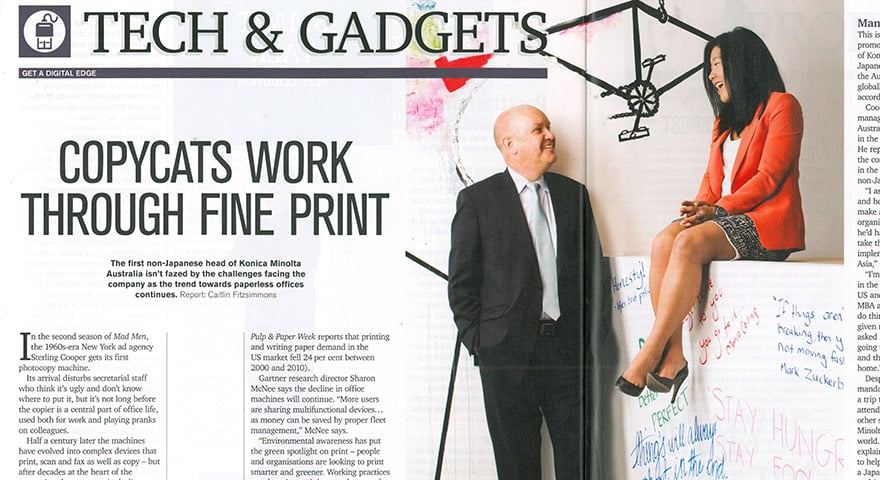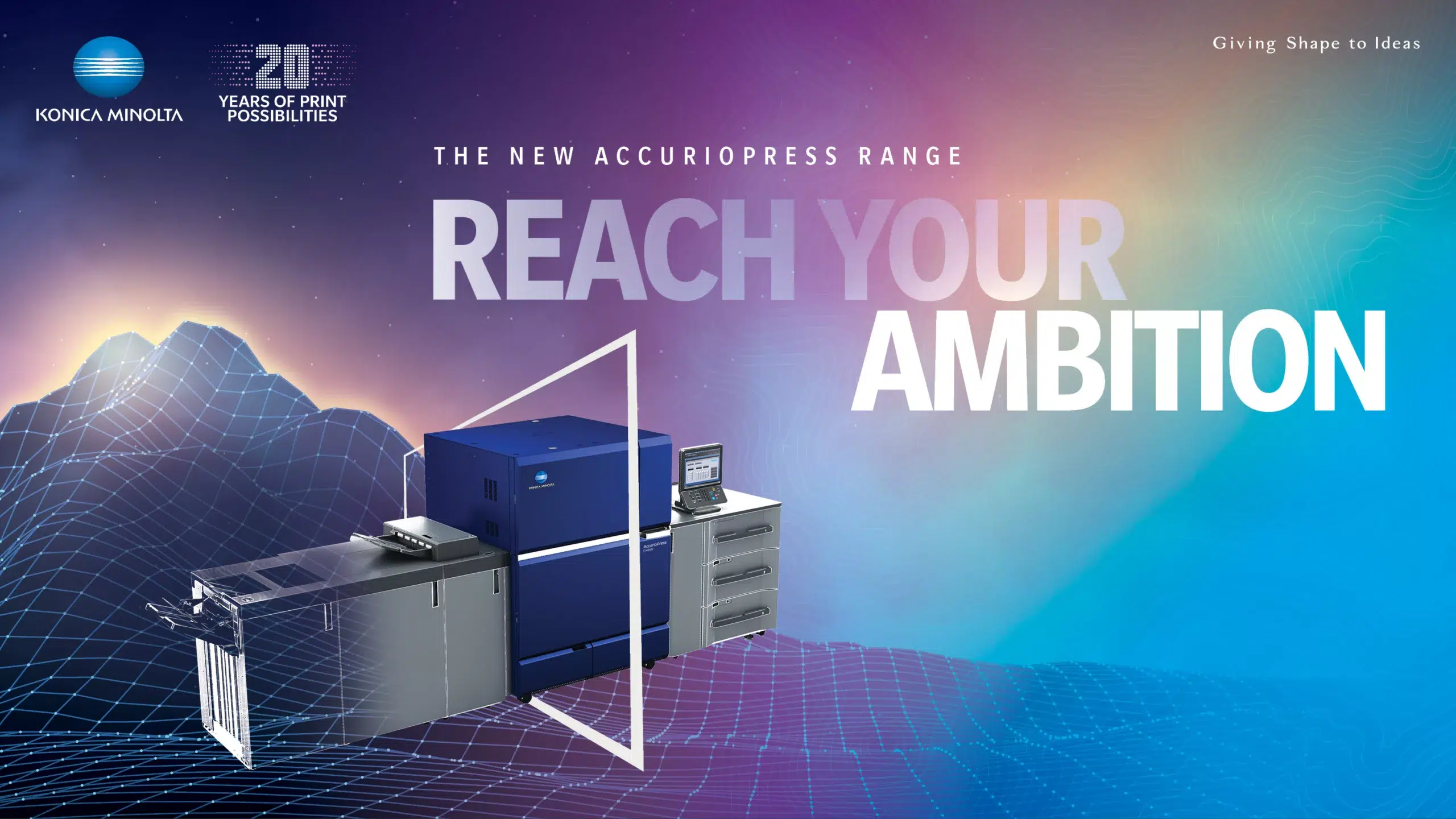Copycats Work Through Fine Print
Caitlin Fitzsimmons, BRW magazine
Excerpts from the original article published June 6, 2013:
In the second season of Mad Men, the 1960s-era New York ad agency Sterling Cooper gets its first photocopy machine.
Its arrival disturbs secretarial staff who think it’s ugly and don’t know where to put it, but it’s not long before the copier is a central part of office life, used both for work and playing pranks on colleagues.
Half a century later the machines have evolved into complex devices that print, scan and fax as well as copy – but after decades at the heart of the enterprise, they are now in decline.
Mandate for social change
This is the backdrop to David Cooke’s promotion in May to managing director of Konica Minolta Australia. The Japanese company is ranked fourth in the Australian print market and fifth globally by end-user spending, according to Gartner.
Cooke is the first non-Japanese managing director of Konica Minolta in Australia and he is a few levels higher in the hierarchy than his predecessor. He reports directly to Jun Haraguchi, the company’s third-most senior person in the world and is Haraguchi’s only non-Japanese direct report.
“I asked why I was reporting to him and he said it was because he knew I’d make a lot of changes in the organisation. If I report directly to him, he’d have clearer visibility and could take the best of my ideas and implement them throughout the rest of Asia,” Cooke says.
Corporate giving is good business
Cooke is relishing the opportunity for change. One of his biggest passions is corporate social policy – his doctoral thesis was about why companies should support the not-for-profit sector and, through that, the community. In 1970, economist Milton Friedman stated that “the business of business is
“The thing that gets missed is that it’s actually very good business to be engaged with the community. Consumers want to see the corporations they deal with engaging with the not-for-profit sector, be that charities or kids’ sport,” Cooke says.
“To excel in business you have to develop a reputation so that people want to do business with you to a greater extent than your competitors. My research shows that corporate social responsibility is one of the most effective levers.”
Cooke’s plans have met with approval from Konica Minolta’s 500-odd Australian staff and consultants, its regional reseller network and customers. When he was second-in-command, Cooke initiated Konica Minolta Australia’s CSR program, with a modest budget of $100,000 and gained permission for staff to volunteer one day per year. Staff voted for the three charitable organisations the business would partner with, selecting Landcare, the Smith Family and the Breast Cancer Network of Australia.
Now he is the boss, Cooke plans to ramp up the program and increase its budget and scope. He recently added a fourth charitable partnership with Project Futures, a Sydney-based organisation focused on combating sex-slave trafficking. Project Futures, founded by Stephanie Lorenzo in 2009, has a few Australian-based projects, but one of its core functions is to be a local intermediary for the Somaly Mam Foundation in Cambodia, founded in 2007 by trafficking survivor Somaly Mam.
Shift into services
When Cooke joined Konica Minolta seven years ago, it was around the time that the company made the decision to exit film and cameras. Cooke says this gave the company a much clearer direction with 100 per cent of its research and development budget directed to the enterprise print space. It seems to have paid off, with the company winning “line of the year” by independent testing lab Buyers Laboratory (BLI) for three years running. Australian revenue has grown from $125 million to about $205 million since that time, according to Cooke. But if customers are buying fewer office machines in the overall market, there is an obvious imperative for the companies that make them: diversify or settle for managing decline.
Konica Minolta sells software to manage things such as workflow in production environments and also offers what it calls “optimised print services”, more commonly called managed print services. It means Konica consultants advise on how to make the procurement process more efficient and find cost savings for the customers.
Cooke hopes the change in leadership and CSR investments can keep things heading in the right direction.




